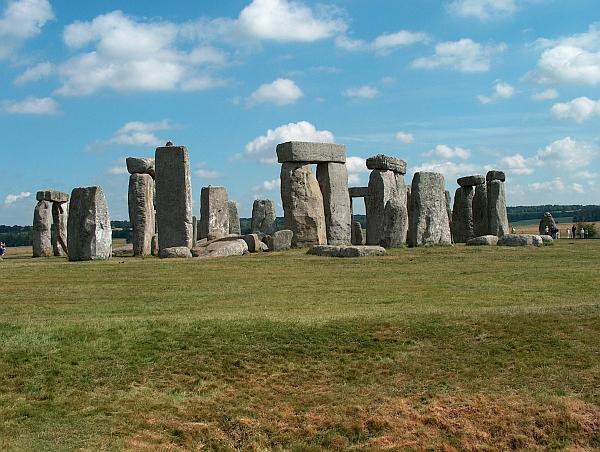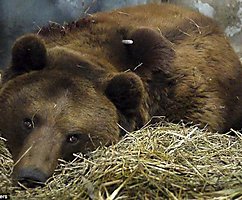Stonehenge was built pastoralists
 Bashny.Net
Bashny.Net

Ancient builders of Stonehenge may have sat on the wonderful meat diet and were sedentary life.
Although agriculture has reached the British Isles about 6 thousand. Years ago, at the time of the construction of Stonehenge and other massive stone buildings gave way to agriculture animal husbandry.
Arheobotanika Chris Sivens organization of Wessex Archaeology and Dorian Fuller of University College London (United Kingdom) noted that the debut of Agriculture in Britain fell on a wet and moderately warm period, which allowed to cultivate Mediterranean culture: Emmer, barley, grapes. Agriculture initially coexisted with the gathering of wild fruits and nuts, and limited cattle breeding, but rapid onset of cool and dry climate (about 5300 years ago) to encourage the transition to breeding cattle, sheep and pigs.
With the return of the former conditions (about 3500 years ago, in the Bronze Age) in the UK again flourished agriculture and sedentary farmers quickly replaced the nomadic pastoralists.
The traditional view holds that agriculture is a rapidly swept England about 6 thousand. Years ago, or spread gradually over the past two millennia. In any case, as the builders of Stonehenge have seen farmers, because its construction began 5500 years ago, and large stones installed about 4400 years ago.
But if the hypothesis is correct Stevens and Fuller, the first round stone and wooden structure erected in Britain, small groups of nomadic pastoralists. The transition from farming to animal husbandry in some areas of Africa and Asia, too, was accompanied by the construction of stone monuments.
"This may be due to the fact that the nomadic groups need from time to time somewhere to get together," - says Mr. Fuller. At these conventions concluded marriages, mated animals and performed ritual holidays. Also, collect a sufficient number of people who could engage in a major construction project.
Stevens and Fuller base their conclusions on an analysis of more than 700 residues of cultivated and wild plants collected in 198 places of the British Isles and dated by the radiocarbon method. Statistical analysis of dates and associated climatic and environmental trends showed that agriculture began to spread to Britain six thousand. Years ago. But about 700 years after the crop plants have become rare, while the popularity of wild food sources has grown considerably.
About 3500 years ago in the British Isles, new culture: peas, beans, spelled. In addition, the time the first barns, granaries and other specific agricultural buildings. Perhaps the start of a new agricultural revolution gave settlers from the continent.
The study is published in the journal Antiquity.
Tags
See also
Biologist Jared diamond: Why do we like sex and why men
Slackers is dedicated to: time management for the irrational
Sex. Attempt to take a sober look at the sexual relationship
13 benefits "owls" — those who lead a nocturnal
Daylight saving time: how it started and why?
First to demonstrate that people use milk already 7000 years
It's time to open your eyes. Part 2/2
Dzh.Osava: Macrobiotic Zen - the rules of healthy eating
Termites have mastered agriculture 25 million years earlier than men
John.Osawa: Zen Macrobiotic — healthy eating rules

















